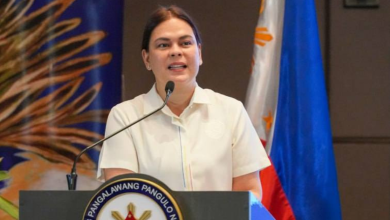MANILA: Inspired by the Australian model of college financing for all, Albay 2nd District Rep. Joey Sarte Salceda filed in July a bill granting universal access to tertiary education.
HB 2771, titled “Universal Access to Tertiary Education Act of 2016,” to address illiteracy, and in the long run help solve poverty, has long been overdue, The Standard quoted Salceda as saying.
“Courses in private universities average P30,000 per semester. Even the P1,000 per semester tuition fee in state universities and colleges, however, can be beyond the reach of a family of five which needs at least P8,778 a month to meet only their basic food and non-food needs, let alone send one child to college,” he reportedly pointed out.
Quoting former US Fed chairman Bernard Bernanke, Salceda added: “From a macroeconomic standpoint, education is so important because it is so directly linked to productivity, which, in turn, is the critical determinant of the overall standard of living.”
A government study shows that in 2014, the median daily earnings of college graduates were 116 percent higher than those of high school graduates who in turn registered 26 percent more earnings than elementary graduates.
Even those with college units only enjoyed a 27 percent advantage over those HB 2771 provides free public tertiary or higher education for all qualified students enrolled in any bachelor’s degree and technical/vocational program offered in all state universities and colleges and establishes a Higher Education Contribution System (HECS) that grants concessional loans to, and collects repayments from Filipino students admitted and enrolled in private colleges and universities. HECS grantees must be Filipino citizens, the study pointed out.
To qualify for HECS participation, colleges and universities must have CHED accreditation. To qualify for admission to HEIs, students must satisfy admission requirements, must be Filipino citizens, and have insufficient family income. If there are more applicants than the HECS budget can subsidize, they will be chosen on “first come, first serve” basis, said the news portal.
Students already enrolled in HEIs who want to avail of HECS, would have their education assistance deducted or credited to their billing at the start of each semester for the remaining semesters until they complete their baccalaureate courses.
Private HEIs would be required to submit a list of their grantees and total HECS releases every semester end, after verification of which, they will be reimbursed. Beneficiaries will repay their HECS loans when they get employed.
Payments will be collected monthly by either the Social Security System or the Government Service Insurance System as a percentage of their income, on top of their regular monthly contributions. Repayments will be triggered only when their gross income reaches the compulsory repayment threshold (CRT) or the minimum annual gross income level.
“No job, no repayment, but if one is educated, he can easily land a job and can pay back. Thus, the entire education system should be compelled to be effective and efficient to produce graduates for good paying jobs, here and abroad,” Salceda reportedly said.
HECS, he added, is an “expansive and enabling” approach patterned after the Australian model of educational assistance also called HECS. The system has been tested with impressive results by the Albay Higher Education Contribution Scheme (AHECS), which Salceda introduced when he was governor. It has helped 88,444 college scholars in the past nine years, many of whom have already graduated and are now either entrepreneurs or gainfully employed here and abroad.
The bill provides that the government shall seek long term funding from bilateral and multi-lateral institutions which provide concessional interest rates, multi-year release with tenor up to 30 years, reported The Standard.




